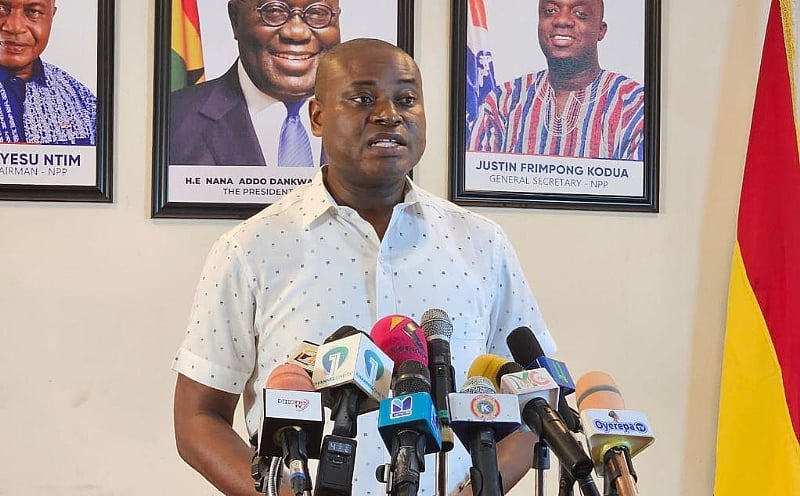The New Patriotic Party (NPP) has launched a scathing critique of the National Democratic Congress (NDC), accusing the latter of instilling a climate of fear, aggression, and political intimidation whenever it holds the reins of power in Ghana. Richard Ahiagbah, the NPP’s National Communications Director, contends that the NDC operates with a “siege mentality,” fostering an environment of impunity, emboldening security forces to act with excessive force, and ultimately, creating a pervasive sense of fear and insecurity among the citizenry. This pattern, he argues, has become a recurring theme throughout the Fourth Republic, placing undue strain on Ghana’s democratic institutions whenever the NDC assumes control. Ahiagbah’s remarks, delivered on Metro TV’s Good Morning Ghana program, highlight a deep-seated concern within the NPP regarding the NDC’s governance style and its perceived negative impact on the nation’s democratic progress.
Ahiagbah further asserts that the NDC’s alleged penchant for violence and intimidation has deep roots in its history, specifically its origins in the Provincial National Defence Council (PNDC), a military junta that ruled Ghana for over a decade. He posits that this history has left an indelible mark on the NDC’s political DNA, hindering its full embrace of democratic principles. The NPP spokesperson claims that the NDC was a reluctant participant in the transition to the Fourth Republic, forced into accepting a democratic system that it was never fully committed to. This reluctance, he suggests, manifests in the party’s alleged resort to violence and intimidation as tools for maintaining political control.
The NPP’s accusations paint a picture of a political landscape deeply scarred by the NDC’s alleged actions. Incidents of violence and intimidation during past by-elections in constituencies such as Talensi, Chereponi, and Atiwa, according to Ahiagbah, are not isolated events but rather symptomatic of a broader culture of political coercion fostered by the NDC. This culture, he argues, undermines the integrity of Ghana’s electoral processes and threatens the very foundations of the nation’s democracy. By linking these incidents to a larger pattern of behavior, the NPP seeks to portray the NDC as a party that consistently prioritizes power over democratic principles.
The NPP’s criticisms are not merely historical observations but rather a direct challenge to the NDC’s legitimacy as a democratic actor. By drawing a connection between the NDC’s past and its present actions, the NPP seeks to frame the party as an ongoing threat to Ghana’s democratic stability. This narrative serves a dual purpose: it discredits the NDC in the eyes of the public and simultaneously positions the NPP as the true guardian of Ghana’s democratic values. The accusations are strategically timed, coming amidst ongoing political maneuvering and positioning ahead of future elections, and aim to influence public perception and potentially sway voter allegiances.
The implications of the NPP’s accusations are far-reaching, potentially influencing the trajectory of Ghana’s political landscape. By raising concerns about the NDC’s commitment to democratic principles, the NPP seeks to sow seeds of doubt and distrust among the electorate. This strategy could have a significant impact on voter behavior in future elections, potentially bolstering support for the NPP while eroding the NDC’s base. The accusations also raise broader questions about the health of Ghana’s democracy and the role of political parties in upholding democratic norms.
Ultimately, the NPP’s accusations against the NDC represent more than just political rhetoric. They are a reflection of the deep-seated tensions and rivalries that characterize Ghana’s political landscape. The charges of fear-mongering, intimidation, and a reluctance to embrace democratic principles strike at the heart of the NDC’s credibility and raise serious concerns about the party’s ability to govern responsibly. These accusations, whether substantiated or not, have the potential to shape public opinion and influence the course of Ghana’s political future. The ongoing debate between the NPP and the NDC underscores the fragility of democratic institutions and the constant vigilance required to safeguard them against those who might seek to undermine them for political gain.














